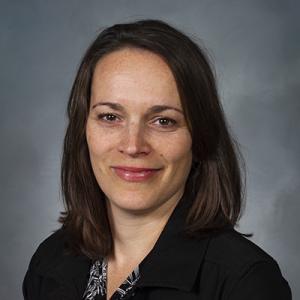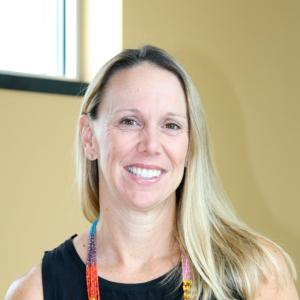Community College Faculty Fellows Bring Migration Studies into the Classroom
Community college faculty fellows enhance their curriculum on racism, dispossession, and migration with a year-long professional development fellowship from Migrations. Learn about our 2022 cohort of fellows based at community colleges across New York State.
Lisa Heath
Adjunct professor in humanities, Finger Lakes Community College (FLCC)
With her fellowship, she will create a library of children’s picture books to be utilized primarily by education majors. The collection will include books that both show stereotypical representations of marginalized groups and challenge them across a diverse spectrum of themes, including race, culture, immigration, gender, sexual identity, disability, and learning style. This project presents an unparalleled opportunity to provide education majors and literature students with access to much-needed materials for the young readership they will serve as educators, while further positioning FLCC in a leadership role toward the multi-disciplinary implementation of Diversity, Equity, and Inclusion initiatives across the SUNY network.
Melissa Johnson
Professor of art, Cayuga Community College
Her fellowship project “Art: Landscape, Place, and Migration” will introduce students to the experiences and realities of migrant farmworkers in the upstate New York region, the stories and voices of advocacy, as well as the connection to their own food choices. Johnson’s applied learning project will involve a deep look at works by and about migrant farmworkers and migrant farmworker social justice movements, and/or a collaborative project with a community organization or museum, and students from a peer art program. The project will end with a student art exhibition, as well as a printed catalog. She also plans on developing a new module for her course, Art of Diverse Cultures, that will lead students through a critical analysis of works that deal with complex issues of racism, dispossession, and migration. Part of the module will include artwork about and by migrant farmworkers and refugees.
Angela Palumbo
Assistant professor of English as Second Language, Tompkins Cortland Community College (TC3)
As a fellow, she will expand her Intercultural Communication course that includes a unit on refugee stories. The curriculum will help students better understand the many reasons that people migrate, such as climate change, racial/religious/political persecution, war, and more, as well as gain insight into the specific dangers of trafficking and labor exploitation that face women and children. Students will also explore how refuges and migrants are received in their new locations, diving deeper into the racism and xenophobia that migrants face and consider some of the root causes of this “fear of the stranger.” Students will hear multiple stories—stories of courage, stories of resilience, stories of grief—so that they possess not only the tools to reject one-sided news stories, but also to gain a deeper level of empathy towards their classmates, neighbors, and fellow citizens of the world. Intercultural Communication was originally created during Palumbo’s time as a 2019–20 Cornell Community College Internationalization Fellow with the Einaudi Center.
Kelly Wessell
Professor of biology, Tompkins Cortland Community College
Kelly Wessell's fellowship supports the creation of a new unit in his existing Global Seminar course that addresses climate-based migration. Students will conduct an interdisciplinary exploration of climate-based migration, looking at not only the issues which have led to the crisis, but also on the complexity of the solutions. The class will address the following questions: How will the climate crisis impact global human migration patterns? How does climate change magnify other challenges related to race, gender, and poverty? How has the U.S. contributed to the crisis and how will we be impacted by it? What can the U.S. do at the national level to help address the problems associated with it?




